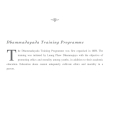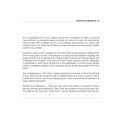ethical teachings : ค้นหาหนังสือธรรมะ หน้า 3 / 3
หน้าหนังสือทั้งหมด

7
Understanding the Mind in Thai Culture
"this or that", "black or white", with no gray area, as the
locals find this logic easy to grasp and put into practice. In
addition, Thai culture and language has a relatively large
amount of words an
This text discusses the simplicity of dualistic thinking in Thai culture and the rich linguistic resources that explain human cognition. It emphasizes that terms often linked to Buddhism should be tre

10
Overcoming Kilesa: A Buddhist Perspective
learn how to improve and "win" the internal battle against
our own kilesa. Although people generally recognize the fact
that they acquire bad habits throughout their lives, they may
not recognize that
This book explores the concept of kilesa, or our negative tendencies and habits, through a Buddhist lens. It emphasizes the importance of acknowledging our imperfections and understanding that the acc

121
Truth for the Family: Lessons from the Buddha
Part Five: Truth for the Family
2. Ideally, he/she should be extremely intelligent,
exceptionally virtuous, exceedingly knowledgeable
of the truths about life (be enlightened), and all
his knowledge m
In this passage, we delve into the qualities of an ideal mentor and the essence of the Buddha's teachings. The ideal mentor is someone who is not only intelligent and virtuous but also knowledgeable f

2
Message from The Most Ven. Phrarajabhavanavisudh - World Peace Ethics Contest 2007
Message from The Most Ven. Phrarajabhavanavisudh
On occasion of the Examination Day for the World Peace Ethics Contest 2007
Greetings to all contestants of the World Peace Ethics Contest 2007,
The
In a heartfelt message for the World Peace Ethics Contest 2007, The Most Ven. Phrarajabhavanavisudh encourages contestants to embrace the universal truths of the Buddha's teachings. He highlights the

181
Understanding External and Internal Fools in Buddhism
1) External Fools include non-Buddhists. They are determined to demolish Buddhism, whether they are of other religious affiliations or not. They typically try to cast aspersions upon Buddhist monks. W
In Buddhism, External Fools are non-Buddhists who seek to distort and undermine Buddhist teachings, casting aspersions on monks and creating confusion. Internal Fools, on the other hand, are Buddhists

38
Understanding the Concept of Dhammakāya in Buddhist Thought
D.III.84
Vāsettha and Bhāradvāja, he whose confidence in the
Tathāgata is settled, rooted, established, solid, irremovable by
any ascetic or brahmin, any deva or Māra or Brahmā or anyone
in the world
In this passage, Vāsettha and Bhāradvāja discuss the unwavering confidence in the Tathāgata, stating that those deeply rooted in dhamma can claim to be heirs of dhamma. The term 'dhammakāya' and its i

80
Understanding Dhammakāya and its Significance in Buddhism
mental qualities128 or purity,129 or identifies it with realities to be
attained or experienced spiritually by noble disciples through the
penetration of the noble paths.130 In one instance, he connec
This text examines the term dhammakāya as articulated by Buddhaghosa, linking it to spiritual realities and teachings of the Buddha. It highlights the role of dhamma-vinaya as a guiding principle and

129
Exploring the Center of the Body in Meditation
Thus, the phrase 『息中具有四大。心在中』 can be interpreted as: "the mind should be located at the centre of the body while breathing (in and out)." The precise position of the centre of the body where the mind
This text examines the phrase 'the mind should be located at the center of the body while breathing in and out.' It references the teachings of PhraMongkolthepmuni regarding the center's location abov

71
Growth of Dhammakaya Foundation's Global Influence
ROM QUALITY GREW QUANTITY
The reputation for training offered by the Dhammakaya Foundation has spread primarily by word of mouth, increasing the popularity of activities held, as the years pass by. P
The Dhammakaya Foundation's dedication to meditation training has led to a significant reputation, expanding through word of mouth and enhancing lives. Local branches in Thailand and abroad facilitate

15
The Lord Buddha's Teachings
The Lord Buddha's Teachings
The Lord Buddha's Teachings
Solve the Root Causes of Life's Problems
Habits, Mind, Body, Word
1. The Lord Buddha's Teachings aim to completely remove defilements from the
The Lord Buddha's Teachings focus on eliminating defilements from the mind to resolve all problems in life. By mastering one's habits, which govern both the body and mind, individuals can achieve cont

28
Understanding the Root Causes of Life's Problems through Buddhism
Summary
Concepts - The root causes of life's problems include economic problems, conflicts, and defilements
- The Lord Buddha's Teachings aim to correct the root causes of life's problems
- Buddhism c
This text discusses the root causes of life's problems, including economic issues, conflicts, and mental defilements, proposing that the Teachings of the Lord Buddha offer comprehensive solutions. By

10
Delicate Love and Buddhist Values in Relationships
Delicate Love
Buddhist traditions serve as wonderful guidelines for
a couple's married life. If we are to study Buddhist
traditions, we will learn to distinguish which actions
are appropriate and inap
Delicate Love discusses the guidance provided by Buddhist traditions for couples in their married life, emphasizing ethical actions and the importance of The Five Precepts. It contrasts modern views o

54
Raising Children: The Four Requisites for Success
Part Two: Raising Children
using the four requisites. We will need to ask ourselves if we
have the ability to maintain quality (always delivering our
best); ability to manage our time (seeing all the
In raising children, it's crucial to embody qualities of quality, time management, and financial prudence, as children absorb both good and bad traits from their parents. By consistently modeling thes

146
Truth for the Family: The Five Precepts
Part Five: Truth for the Family
of infringing upon all the other precepts. Hence, the
Fifth Precept reminds us not to consume intoxicants
to maintain our true nature.
Thus the Five Precepts are:
1. Do
The Five Precepts offer a framework for living an ethical life that enhances our humanity. They include refraining from killing, stealing, adultery, lying, and consuming intoxicants. Adhering to these

128
Journey to Joy
Journey to Joy
128
anger, dissatisfaction in life, depression, physical
dysfunctions, burning out symptoms and different
stages of inner and outer conflicts, mainly showing
up in their partnerships an
In 'Journey to Joy', the focus is on addressing the negative emotions and conflicts in life, particularly those manifesting in family and partnership dynamics. The text emphasizes the importance of te

130
Journey to Joy
Journey to Joy
130
I aim to provide the right climate so that
people can make their own choices to change
their life actively for the better. According to
experience, a personal choice for a new conce
This text discusses the importance of creating an environment for individuals to make their own choices to improve their lives. It highlights how personal choices are effective in breaking bad habits

78
Dhammadayada Training Programme
Dhammadayada Training Programme
The Dhammadayada Training Programme was first organised in 1972. The training was initiated by Luang Phaw Dhammajayo with the objective of promoting ethics and moralit
The Dhammadayada Training Programme, established in 1972 by Luang Phaw Dhammajayo, focuses on enhancing ethical values and moral development in youths alongside their academic pursuits. Recognizing th

144
Observing the Five Precepts: A Path to Goodness
How do you keep the Five Precepts intact? Conclusion
When I was a student, I started training myself to observe Let
The text discusses the importance of the Five Precepts in Buddhism and shares a personal journey of learning to observe them. The author recounts a practice from their student days of making daily res

93
Wisdom from Meditation
From a spiritual point of view, wisdom gained from meditation will help us become more ethical in our decision-making and also our choice of action. We will become more at ease with ourselves and our
From a spiritual perspective, wisdom gained from meditation fosters ethical decision-making and personal ease, leading to a harmonious family life and improved parenting. Regular meditation elevates t

167
Understanding Wisdom and Wrong Views
Wise (pundita): A wise is someone who has wisdom. Being wise is not the same as being educated. A wise can be a person who is highly educated or one with no formal education at all. He is righteous an
This text highlights the distinction between being wise and being educated, emphasizing that wisdom is innate and ethical rather than solely academic. A wise person embodies righteousness and possesse
